‘The Russians ran but couldn’t hide from the bombs’
A retreat of Kremlin forces in north-east Ukraine quickly turned into a rout. In Balakliya, residents witnessed a military disaster for the Russians.
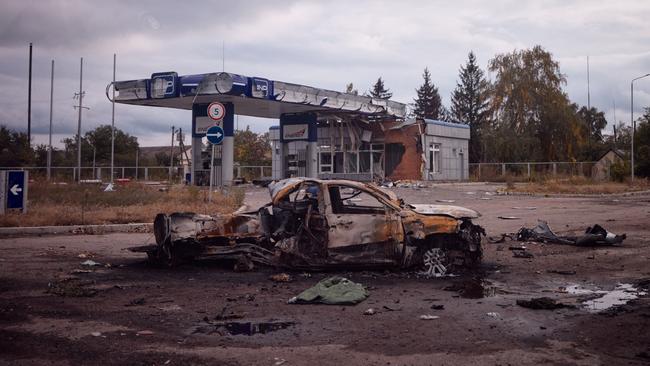
Not many people get the chance to see a first-grade military disaster from their doorstep. Vasyl and Iryna Oryshenko managed it twice.
In March they watched a Russian column drive past their house in the town of Balakliya into the forest and over the hill. Just as it reached the river near the village of Petrivske, the Ukrainians blew up the bridge, trapping them.
Then the artillery opened fire, and destroyed the column completely. That marked the end of the first Russian advance towards the key city of Izyum to the south. Then last week it was the Ukrainians’ turn to attack and there was simply no comparison. The Russians may have had the numbers on their side, but the Ukrainians had accuracy, thanks to better intelligence, surveillance and the new firepower provided by their western allies.
First the Ukrainians hit the Russians’ warehouses, Vasyl Oryshenko, 52, said. “We saw huge explosions,” he said. “The ammunition went up in the air.”
For four hours the whole town had a fireworks display as everything from grad missiles to mortar shells blew up, sending bright streaks of light into the sky. The day after the third warehouse was hit, the Ukrainian howitzers, firing unseen out of the forest, started on the Russian soldiers’ positions.
A drive through Balakliya reveals the pinpoint targeting: military lorries, strongpoints, a burnt-out mobile anti-aircraft battery on the side of the road.
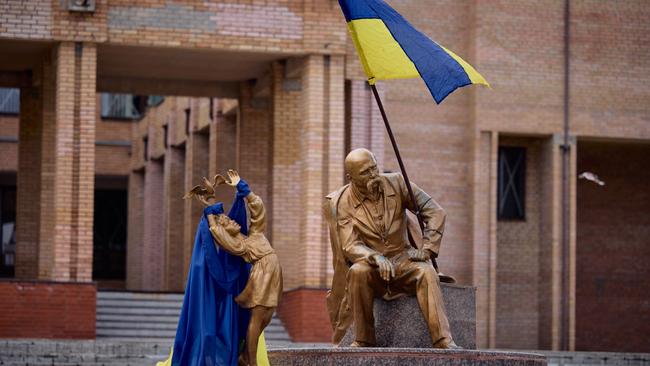
The Russians tried to hide in civilian buildings. “But wherever they went, the Ukrainian artillery knew exactly where they were,” Iryna, 60, added.
The softening-up process took 24 hours. But before the Ukrainians could even launch an attack, the Russians fled. “They just ran away,” she said. “They blew up the bridge and left.”
That was at 8am last Wednesday. Behind the Oryshenkos, the main bridge of the town was indeed reduced to lumps of tarmac and railings — still painted in Ukrainian blue and yellow.
The bridge crosses a tributary of the Siverskyi Donets river, battles over whose length have become key moments of this war. But this time there was no more fighting. For the next seven hours there was quiet, and the Oryshenkos shook with excitement, a strange period of limbo in what in the end has turned out to be no more than a frightening six-month interruption to the rhythm of normal life.
“It was like pain relief after all the suffering,” Vasyl Oryshenko said. “I was hit by waves of emotion. I started laughing. Then I was just crying, crying.”
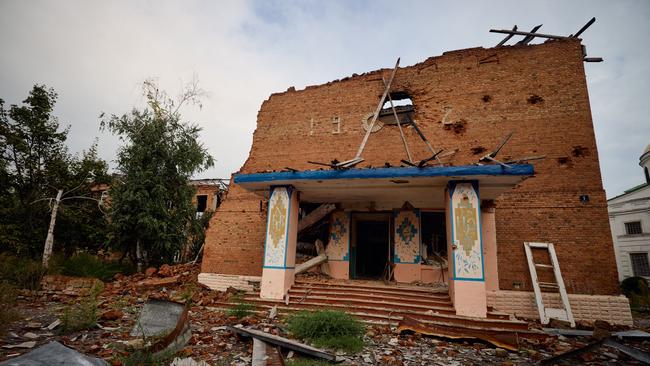
At 3pm a Ukrainian reconnaissance party emerged from the woods where in peacetime the Oryshenkos ran their timber business. As they walked through the northern half of Balikliya, women emerged from houses to embrace them. “My 91-year-old mum came out into the road and started kissing them,” Olena Stepanova, 63, said.
Her mother, Vera Stryzhakova, may have been 91, but she still insisted on repeating a small jig of welcome when The Times came across her in her garden yesterday afternoon.
Russia’s defeat has not been a good advertisement for its army’s discipline under pressure. Stepanova said the Ukrainians had been shocked at the ease of their victory. “We expected just to take a few hundred metres,” they told her. “You could have made a movie from the speed of their retreat.”
In fact, she said, the occupation had also been chaotic. Opposite her house, the fencing near the hospital is all smashed up, along with the pavement - that was where, she said, a Russian tank had lost control taking the bend too fast. “I felt like flagging it down and offering the driver lessons,” she said. “He was probably drunk.”
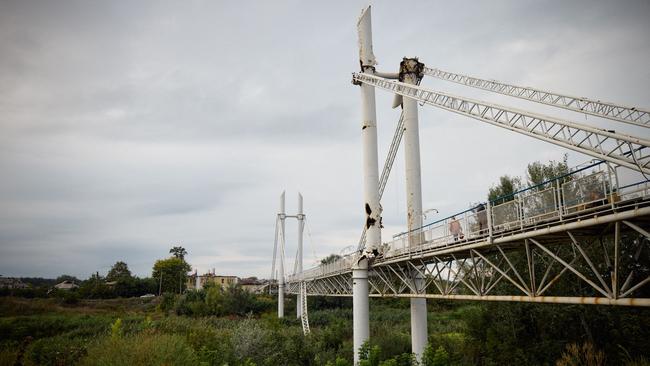
The Russian defeat in Balakliya last week had turned into a general rout by the weekend. The city of Kupiansk to the northeast and Izyum to the south fell, and by Monday the Ukrainians were on the doorstep of the Donbas.
The Russians have now pulled all their remaining troops out of Kharkiv province, opening the way to the border 20 miles from the city of Kharkiv.
Ukraine’s western backers are nevertheless urging caution before premature claims of victory. “What the Ukrainians have managed to do with the resources available is impressive,” one western official said.
But he said it was not necessarily a “turning point”, adding: “The Russians have made some good decisions in terms of shortening their lines and making them more defensible, and sacrificing territory in order to do so.”

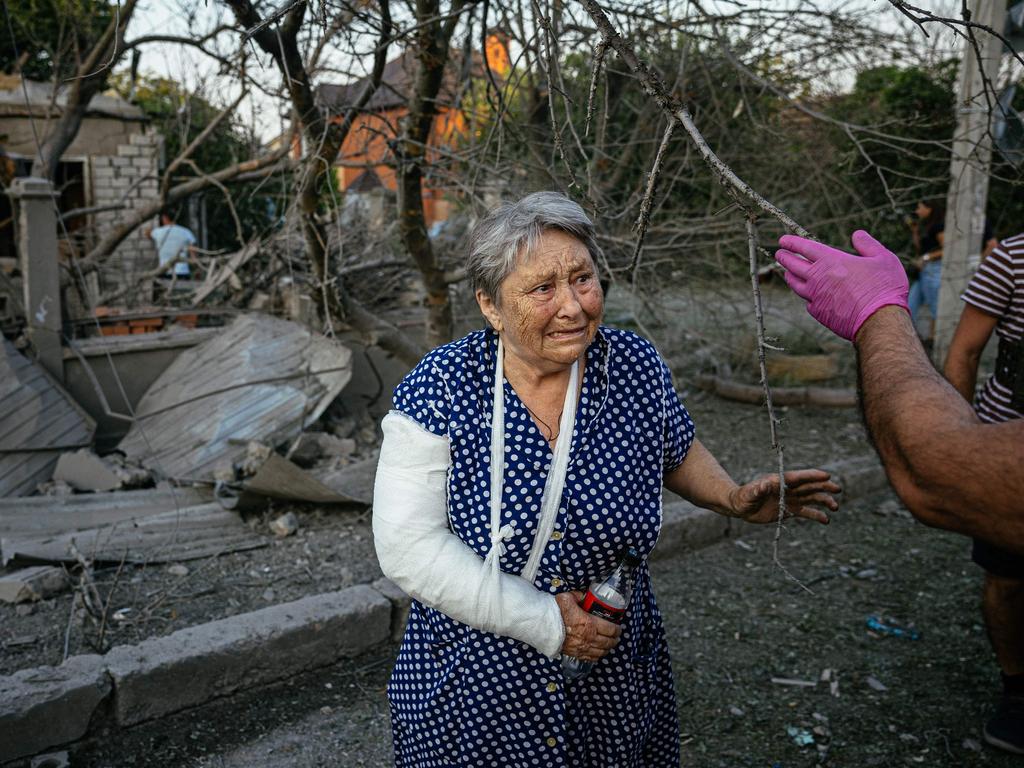
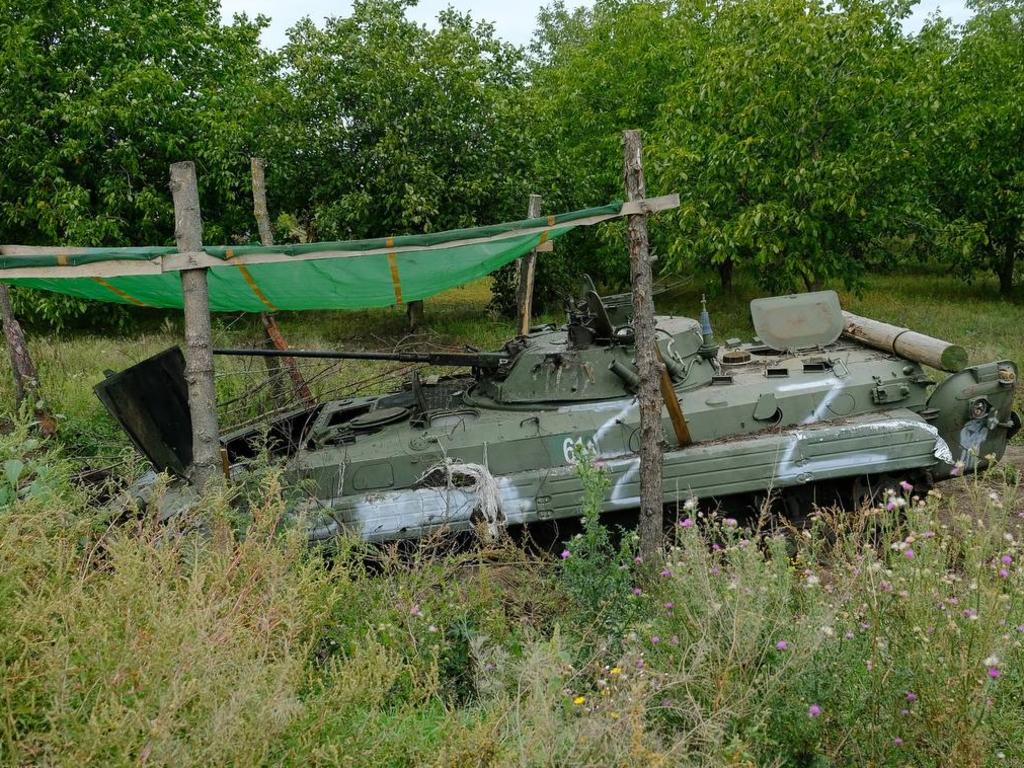
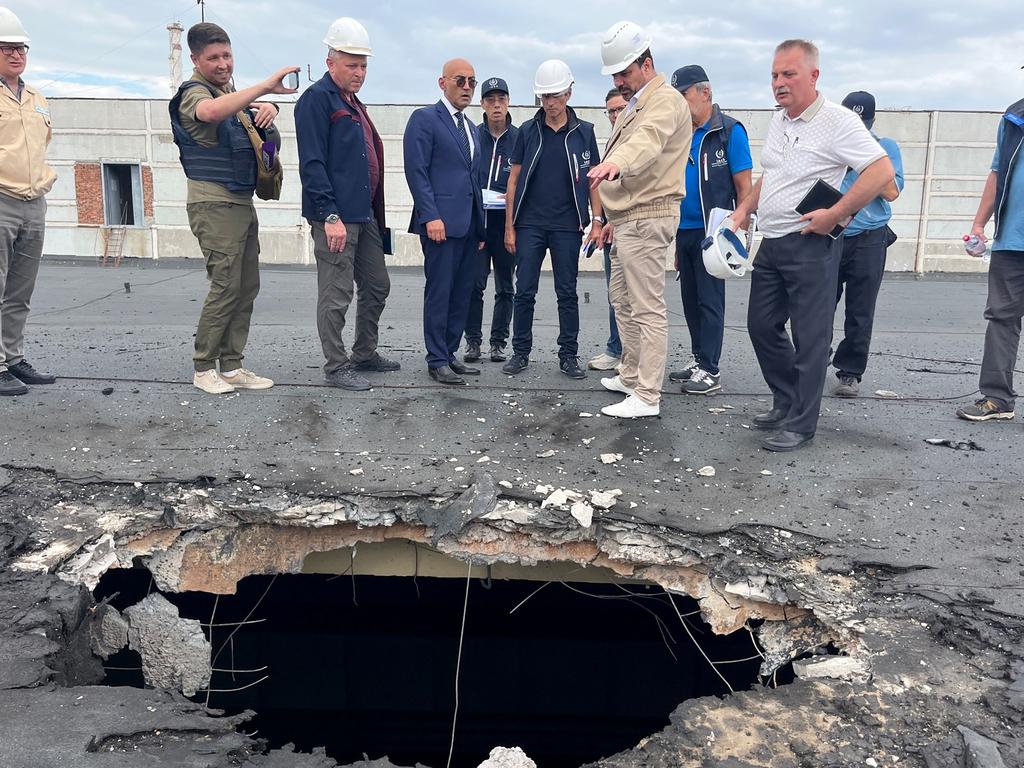


To join the conversation, please log in. Don't have an account? Register
Join the conversation, you are commenting as Logout